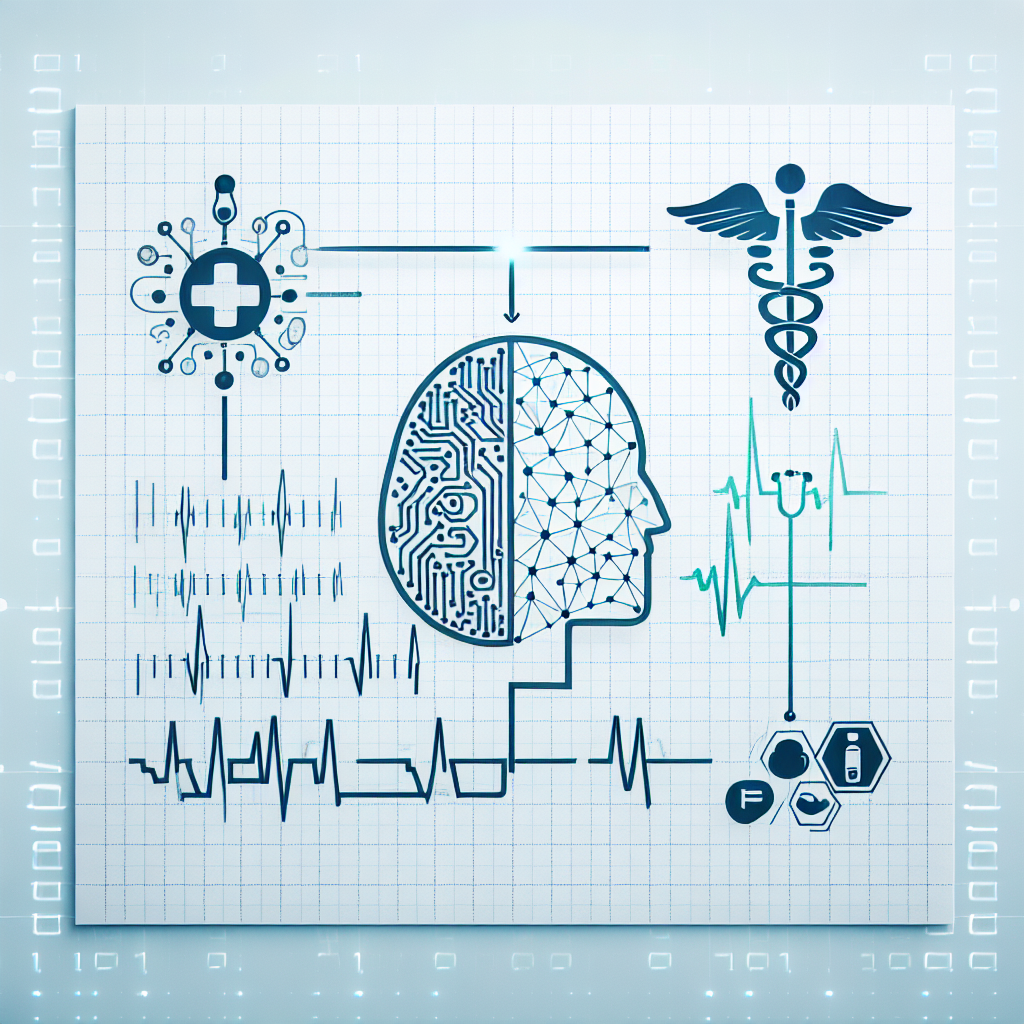The Benefits of Using AI in Electronic Health Records
In recent years, artificial intelligence (AI) has made significant advancements in the healthcare industry, particularly in the realm of electronic health records (EHRs). EHRs are digital versions of patients’ paper charts that contain all of their medical history, diagnoses, medications, treatment plans, immunization dates, allergies, radiology images, and laboratory test results. By integrating AI into EHR systems, healthcare providers can streamline processes, improve patient care, and enhance overall efficiency. In this article, we will explore the various benefits of using AI in electronic health records.
1. Improved Data Accuracy and Efficiency
One of the primary benefits of using AI in EHRs is the increased accuracy and efficiency of data entry. AI algorithms can automatically capture and input data from various sources, such as laboratory results, imaging reports, and patient histories, reducing the likelihood of human error. This not only saves time for healthcare providers but also ensures that patient information is accurate and up-to-date.
Additionally, AI can help healthcare providers identify and correct errors in EHR data, such as duplicate entries or missing information. By flagging inconsistencies and discrepancies, AI algorithms can help maintain the integrity of patient records and prevent potential medical errors.
2. Enhanced Clinical Decision-Making
AI-powered EHR systems can analyze vast amounts of patient data to identify patterns, trends, and correlations that may not be immediately apparent to human healthcare providers. By leveraging machine learning algorithms, AI can help clinicians make more informed and evidence-based decisions about patient care.
For example, AI algorithms can analyze a patient’s medical history, genetic information, and treatment outcomes to recommend personalized treatment plans tailored to their specific needs. This can lead to more accurate diagnoses, improved treatment outcomes, and better overall patient care.
3. Predictive Analytics and Risk Stratification
Another benefit of using AI in EHRs is the ability to perform predictive analytics and risk stratification. AI algorithms can analyze patient data to predict potential health outcomes, such as the likelihood of developing a specific disease or the risk of complications from a particular treatment.
By identifying high-risk patients early on, healthcare providers can intervene proactively to prevent adverse events and improve patient outcomes. This can help reduce healthcare costs, enhance patient satisfaction, and ultimately save lives.
4. Streamlined Workflow and Administrative Tasks
AI-powered EHR systems can automate routine administrative tasks, such as scheduling appointments, sending reminders, and processing billing and insurance claims. By streamlining these processes, healthcare providers can focus more on patient care and less on paperwork and manual data entry.
Furthermore, AI can help optimize workflow by prioritizing tasks, alerting providers to critical issues, and facilitating communication and collaboration among healthcare team members. This can lead to improved efficiency, reduced burnout, and better coordination of care for patients.
5. Enhanced Patient Engagement and Communication
AI can also improve patient engagement and communication by providing patients with personalized health information, reminders, and resources. Chatbots and virtual assistants powered by AI can help patients schedule appointments, refill prescriptions, access test results, and ask questions about their healthcare.
By empowering patients to take a more active role in managing their health, AI can promote better health outcomes, increase patient satisfaction, and strengthen the patient-provider relationship.
FAQs
Q: Is AI secure in electronic health records?
A: AI-powered EHR systems are designed with robust security measures to protect patient data and comply with regulatory requirements, such as HIPAA. Data encryption, access controls, audit trails, and regular security audits are implemented to safeguard patient information from unauthorized access and breaches.
Q: How does AI ensure data privacy in EHRs?
A: AI algorithms are designed to anonymize and de-identify patient data to protect privacy and confidentiality. By removing personally identifiable information, such as names, addresses, and social security numbers, AI can analyze data without compromising patient privacy.
Q: Can AI replace human healthcare providers in EHRs?
A: AI is meant to augment, not replace, human healthcare providers in EHRs. While AI can assist with data analysis, decision-making, and administrative tasks, human clinicians are still needed to interpret results, make clinical judgments, and provide personalized care to patients.
Q: What are the ethical considerations of using AI in EHRs?
A: Ethical considerations of using AI in EHRs include issues related to data privacy, informed consent, bias in algorithms, accountability, transparency, and the impact on the patient-provider relationship. Healthcare organizations must address these ethical challenges to ensure the responsible use of AI in EHR systems.
In conclusion, the benefits of using AI in electronic health records are numerous and can significantly improve patient care, enhance efficiency, and streamline healthcare processes. By leveraging AI algorithms for data analysis, decision-making, predictive analytics, and patient engagement, healthcare providers can deliver more personalized and effective care to their patients. As AI continues to evolve and integrate into EHR systems, it is essential for healthcare organizations to prioritize security, privacy, and ethical considerations to maximize the potential benefits of this transformative technology.

